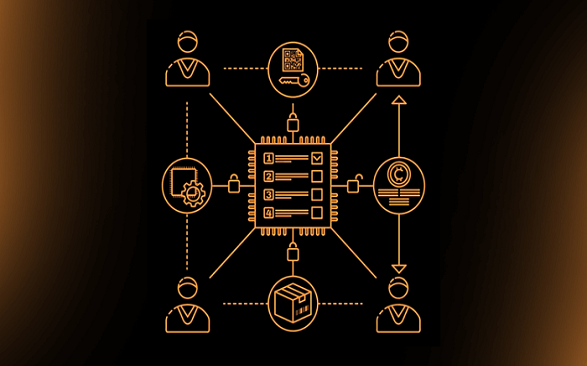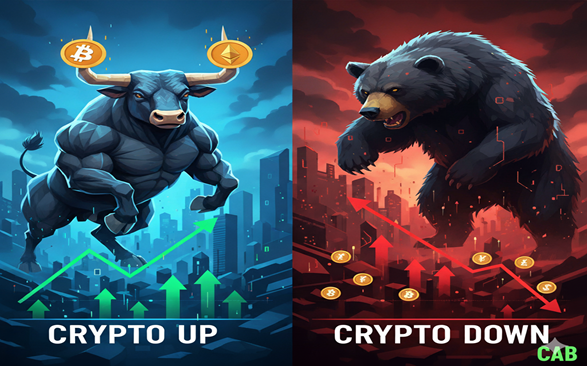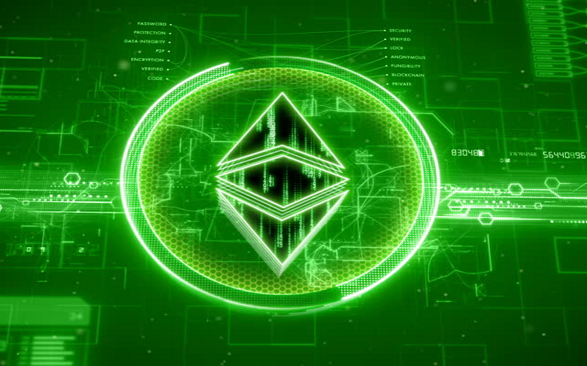In a world of smartphones, smart TVs, and even smart cities, smart contracts are all about smart transactions in a globalized and digital economy. Simply, smart contracts are computer programs that run based on predefined conditions and are stored on blockchains. The central idea is to execute agreements through automation. The phrase and concept of smart contract was introduced in the early 1990s by a prominent computer scientist Nicholas Szabo. Essentially, Szabo imagined that as the digital economy gets increasingly smarter, transactions also need to get smarter. This is where smart contracts come in.
Smart contracts became established and its concept was widely adopted following the launch of the Ethereum (ETH) blockchain in 2015 by Vitalik Buterin and other co-founders. The Ethereum blockchain l was the first blockchain to utilize these self-executing programs. Ethereum blockchain is regarded as the largest smart contract-enabled platform. This is because from inception Ethereum blockchain was built to accommodate different types of layer-2 decentralized applications (dApps) developed on its blockchain.
With the increasing adoption of blockchain, smart contracts have become an important tool for enhancing trust and efficiency across various industries. Hence, the need to fully understand what it entails.
Smart contracts explained
Traditionally, when we talk about contracts, it entails an agreement between two or more parties over a certain issue. That is, all the parties involved are required to perform their respective obligations for the agreement to be enforced.
The digital version of traditional contracts is what we mean by a smart contract. ‘Digital’ in the sense that smart contracts are ‘computer programs’ and they operate on blockchain technology. This makes them decentralized.
Smart contracts are self-executing. Unlike conventional contracts where all the parties involved must do something for the laid-out consensus to be implemented, smart contracts are coded such that the rules and regulations of an agreement between two or more parties are automatically executed. In other words, once the terms of a contract are coded into a computer program, the contract will execute automatically and without the need for intermediaries.
From the foregoing, we can finalize that a smart contract is a self-executing computer program (set of codes) that is written to automatically enforce the rules of an agreement between two or more parties on a blockchain when certain conditions are met.
Because smart contracts are stored on the blockchain, they are transparent and immutable, meaning that once a contract is executed, it cannot be modified.
Read also: What is Blockchain Technology? Meaning, Types, and Use Cases
Types of Smart contract
1. Application Logic Contracts (ALC)
Application Logic Contracts (ALCs) is the type of smart contracts that enables devices and platforms to operate without human intervention by ensuring automation, thus achieving lower transaction costs and scalability. It includes app-based codes that are integrated with other blockchain contracts. Also, ALCs makes Internet of Things (IoT) devices and blockchain technology communicate smarter.
2. Decentralized Autonomous Organizations (DAO)
Decentralized Autonomous Organizations (DAO’s) is a type of smart contract governed by specific rules that are incorporated into blockchain contracts to achieve governance in organizations without any central authority or third party. DAOs are community-based and community-driven, thus they run autonomously in a decentralized manner governed by rules and self-enforcing codes.
3. Smart Legal Contracts
As the name suggests, smart legal contracts apply to legal agreements entered into by two or more parties. Although the terms and conditions are written into self-enforcing codes, smart legal contracts must be in accordance with the laws that apply in the jurisdiction that smart legal contract is to be enforced. In the event a party fails to comply, legal consequences arise.
What is a smart contract-based platform?
While the concept of smart contracts keeps spreading in the crypto industry like wildfire, it bears noting that not all blockchain platforms have smart-contract functionalities.
Notably, the core function of smart contracts is to facilitate the onboarding or development of decentralized applications. That is, smart contracts are the tools that enable new blockchain applications, commonly called decentralized applications (dApps), to be built on an existing blockchain platform. Therefore, the numerous Layer-2 blockchain solutions we have today are a direct application of smart contracts. An example of a layer-2 blockchain is Polygon which is built on the layer-1 blockchain, Ethereum.
So a smart contract-based platform is any blockchain that allows new projects to be developed on it. Any blockchain without this functionality is not regarded as a smart contract-based platform. Amongst others, the Bitcoin and Bitcoin Cash (BCH) blockchains are not smart contract-based platforms.
Some of the popular blockchain platforms with smart-contract functionalities include Ethereum, Cardano, and Solana. Each of these platforms has unique features and is widely adopted. Ethereum is the most popular smart contract-based blockchain, powering numerous dApps.
Related: What is Blockchain Technology? Meaning, Types, and Use Cases
Pros and Cons of Smart contracts
Pros
1. Autonomy
Because smart contracts do not rely on centralized authorities, middlemen, or third parties for decision-making, there is neutrality and automation. As decisions are made in the chain based on predefined rules programmed in the code, human agents, brokers, etc that may bring distrust into the system are not required.
2. Transparency
Blockchain makes smart contracts open, enhancing trust in transactions carried out by parties. With its open and decentralized ledger, blockchain logs all transaction history and ensures that all participants have copies of the truth. In the event any user attempts to add new information to the chain, smart contracts require that such information is verified by the validators. If the new information fails to meet the predefined conditions written into the smart contract code, it will not be added to the chain. Where verified, the information is added to the timestamp and becomes immutable.
3. Immutability
Once a smart contract is deployed, the code cannot be altered or changed by a party unilaterally. This is because the resulting code is stored on the blockchain and, theoretically, cannot be updated afterwards. This immutability characteristic of smart contracts ensures protection-by-design against hacking and other malicious attacks.
4. Cost reduction
Apparently, smart contracts reduce costs because it essentially disintermediates. This cost-reduction benefit applies both in terms of time, money, and other resources since transactions are automated, requiring no middlemen or third parties. There are no waiting games with completing transactions. This is why smart contract transactions are very fast.
5. Wide Applications
Just as the automation artificial intelligence (AI) makes AI amenable to application across various industries, so does the automation that smart contracts bring. Smart contracts are widely applicable in various industries, including finance, healthcare, entertainment, law, real estate, supply chain, and even governance.
Cons
1. Complexity
One of the downsides of smart contracts is how complex the code can be. Therefore, the decision to deploy a solution or platform powered by smart contract should take into consideration the complexity involved.
2. Errors and Flaws
Though smart contracts do not need human intervention, humans created them therefore they may have errors and flaws. Technical errors and flaws in a code are serious problems. They can be the source of potential bugs, thus making the affected smart-contract platform vulnerable to hacking.
3. Scalability problem
While smart contracts automate transactions, blockchain transactions can take time. This is because smart contracts copy every transaction to all nodes in the network. Where thousands or millions of transactions are being carried out at the same time, congestion is triggered. This results in delays and consequently more costs. For example, the Ethereum blockchain experiences scalability problems. This has led to the creation of more scalable blockchains, including Cardano and Polygon.
4. Lack of flexibility
The immutable feature of smart contracts makes it lack flexibility. In traditional contracts, updates and modifications can be easily made. But with smart contracts, it is extremely difficult or near impossible to update pre-programmed conditions. So fixing errors and flaws becomes either near impossible or prohibitively expensive. Although, notably, not all smart contracts are immutable. Immutability largely depends on the design of the blockchain the smart contract is deployed. For instance, while Ethereum blockchain is theoretically immutable, Solana blockchain has inbuilt designs for making changes and upgrades.
5. Incidents of Scam and Fraud
Although not the inherent problem of smart contracts, smart contracts have fast become a buzzword for both scammers and fraudsters who take undue advantage of unsuspecting people to scam or defraud them. Apart from lack of awareness and education about what smart contracts are and how they work, a major reason for these incidents of scam and fraud is that smart contracts are widely applicable to many industries. So it is relatively easy to promote or sell snake oil using the buzzword, “smart contracts”. This is similar to how scammers and fraudsters also use “blockchain”, “Web3”, “metaverse”, and other buzzwords to bamboozle their victims.
Read also: Top 5 Decentralized Exchanges You Should Know
Use cases of smart contracts
As a revolutionary concept, smart contract use cases cut across a plethora of sectors. Because they are highly trusted, decentralized, and immutable, smart contracts can be used to automate business processes.
Smart contracts have found numerous use cases in the blockchain space. Here are some of the most notable examples:
- Decentralized Finance (DeFi): One of the most popular use cases of smart contracts is in DeFi applications. Smart contracts are used by many crypto projects to automate various financial operations such as lending, borrowing, swapping, and derivatives among others. One of the most popular DeFi platforms is Uniswap, a smart-contract platform built on Ethereum where anyone can swap, earn, and build on a decentralized crypto trading protocol.
- Supply Chain Management: Supply chain refers to the series of activities from the raw material sourcing stage to the actual production phase to the delivery of a product or service to the end customer. Smart contracts come in very handy in this area as they help in automating these processes, including the tracking of goods on the supply chain.
- Identity Verification: Smart contracts can also be used for identity verification. By using self-sovereign identity (SSI) systems, individuals can own and control their identities and personal data, improving privacy and security. An example of a project using smart contracts for identity verification is the Sovrin Foundation. Sovrin Foundation established the governance framework governing the Sovrin Network, a public-service utility enabling self-sovereign identity on the internet. Sovrin Network uses a decentralized identity system to verify and authenticate individuals without relying on third parties.
- Intellectual property: Intellectual property (IP) refers to creations of the mind, such as inventions, literary and artistic works, designs, symbols, and names, used in commerce. To automatically enforce copyrights, patents, and trademarks, smart contracts can be used to ensure that creators are duly compensated for their work.
- Real Estate: This is another area where smart contracts can also be used. In the real estate industry, they can be used to automate the buying and selling of properties. They can also facilitate the transfer of ownership and automate the payment process, reducing the need for intermediaries and making the processes faster and more efficient. An example of a project using smart contracts for real estate is Propy, which allows users to buy and sell properties using blockchain technology. HouseAfrica is another example of the application of smart contracts in real estate. HouseAfrica applies smart contracts to help estate developers earn the trust of private property buyers and build confidence around every transaction with its digital land registry.
- Insurance: Here, smart contracts can be used to automate claims processing, reducing fraud, and administrative burden. Also, smart contracts can facilitate the payment process and the verification of claims, improving transparency and efficiency. An example of a project using smart contracts for insurance is Etherisc. Etherisc allows users to create and manage decentralized insurance applications using smart contracts.
- Governance: In addition, this technology finds utility in voting and decision-making processes in organizations. Using smart contracts to achieve governance, maximum transparency and fairness can be guaranteed.
Read also: What is Decentralized Finance (DeFi) and How To Benefit from Its Ecosystem?
Conclusion
Smart contracts have become an integral part of the blockchain industry. Today, smart-contract applications across various industries are largely yet to be exhausted. In the world of Web3, the metaverse, decentralized finance (DeFi), and non fungible tokens (NFTs), smart contracts will increasingly play a significant role. Combined with blockchain technology, AI, virtual reality (VR), and Internet of Things (IoT), smart contracts will become a vital tool in the digital economy where there is demand for smarter transactions.
As shown above, smart contracts, like any other technology, have their limitations and potential vulnerabilities. It is therefore crucial for smart-contract developers to properly audit and secure their platforms in order to prevent the exploitation of any weaknesses. Additionally, it is essential to ensure that smart contracts operate within the legal framework of the applicable jurisdiction in order to avoid potential legal issues. As smart contracts continue to be gradually deployed across industries, it is expected that its promising use cases as well as features will become fully developed and advanced.
Read also: Understanding the Metaverse and Top Metaverse Coins in the Crypto Market
Credit: Ndianabasi Tom A crypto journalist and content writer who has been talking about cryptocurrency and blockchain technology since 2018, Ndianabasi is a Writer at Crypto Asset Buyer (CAB).
Discover more from Crypto Asset Buyer
Subscribe to get the latest posts sent to your email.





